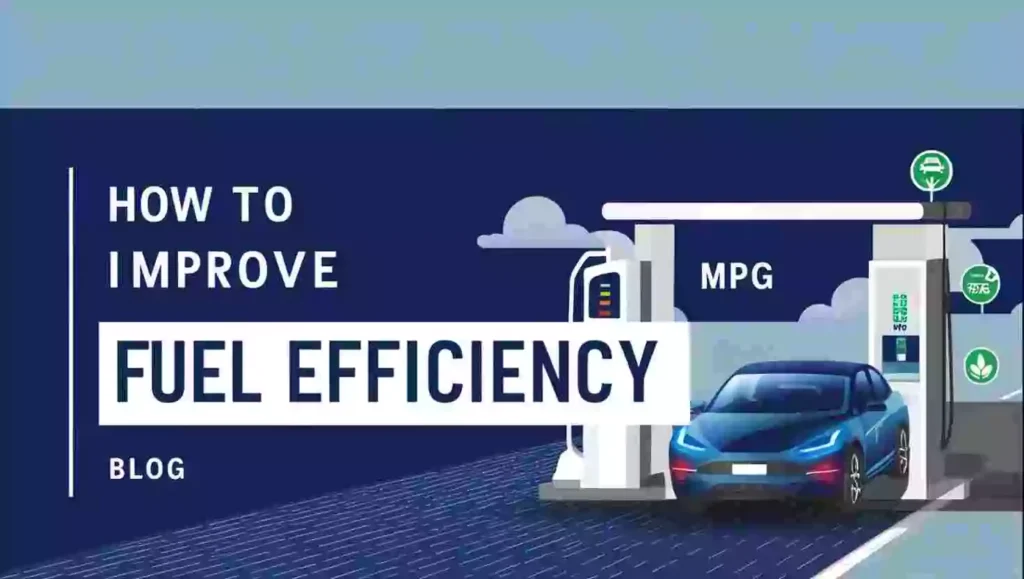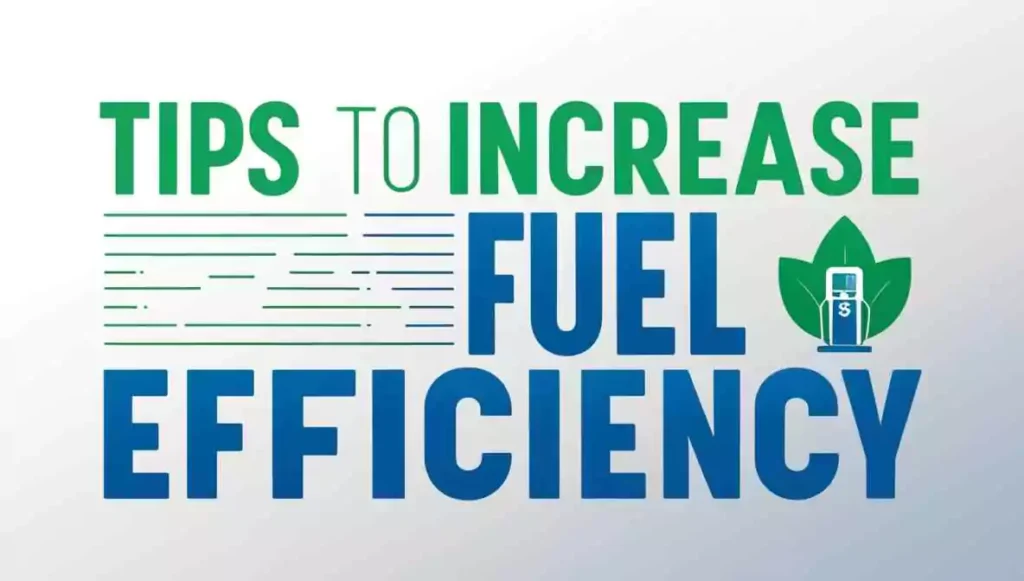Top 8 ways to improve fuel efficiency | Proven tips to reduce fuel consumption

If you improve fuel economy, it will have numerous benefits such as reducing the monthly fuel budget, decreasing environmental impact, improving air quality, and many more. Various surveys show that proper driving skills and regular maintenance of your vehicle can lead to a 20% increase in your car’s mileage. You can use an MPG calculator to monitor your car’s mileage so that you can optimize your car’s fuel efficiency. You can also access a fuel cost calculator to track your expenditure on fuel for a particular journey. In this blog post, I will provide the top 10 tips to improve your car’s fuel economy.
Top 8 tips to improve your car’s fuel efficiency

- Lighten Excess Load: Carrying unnecessary weight can damage your car’s engine. It can affect your car’s fuel efficiency. You can remove heavy items like roof racks or clutter in the trunk to improve your car’s mileage. The Table below shows how extra weight impacts your car’s fuel efficiency.
| Weight Added | Decrease in Fuel Economy (%) |
| 100 lbs | 1-2% |
| 200 lbs | 2-4% |
| 300 lbs | 4-6% |
- Check Your Car’s Tire Pressure: Underinflated tires force your car’s engine to consume more fuel than it usually takes as these tires increase rolling resistance. I would recommend you check your tire pressure on a regular basis and keep it at a certain level to avoid unnecessary fuel consumption. If your car’s tires show any kind of resistance while driving, your car consumes more fuel. So, maintain your tire pressure at the recommended PSI level and check your tires as It will help you improve your car’s fuel efficiency.
- Keep the Air Conditioning On When Needed: A car’s air conditioning system usually consumes more fuel. Moreover, if you drive your car with your windows down at high speeds, it can worsen your car’s fuel efficiency. So, use your car’s air conditioning wisely. Make sure you keep your car windows closed when your AC is on.
- Reduce Idle Time: When your car is idle but the car engine is running, it leads to unnecessary fuel waste. Turning off the engine during prolonged traffic jams or at a train crossing can save a significant amount of fuel consumption.
- Drive at a steady speed: If you drive your car at a steady speed, it not only improves your fuel economy but also enhances your car’s health. Another benefit of driving your car at a steady speed is avoiding car accidents. In recent times, the UK government has published a survey on “how vehicle movement impacts public health” in which it is stated that if you drive steadily and use gradual accelerations and declarations, your vehicle will produce fewer emissions, leading to better ecological footprints. Apart from that, rash accelerations can negatively impact your car’s mileage.
- 40-60 mph: Ideal for most vehicles.
- Over 70 mph: Fuel consumption increases significantly.
- Under 30 mph: Driving at very low speeds can also reduce efficiency.
- Practice Predictive Driving: Predictive driving is a thoughtful driving process that requires anticipating the behavior of other drivers, traffic lights, and stops. It is different from distracted driving where you drive while looking at your smartphone. Predictive driving helps you focus on the driving environment and maintain sufficient distance from the other cars. It is essential to have cautious driving habits to practice predictive driving. This is a part of effective driving skills which reduces the need for frequent braking and acceleration which improves one’s car efficiency to the next level.
- Use Gears and Brakes Properly: You need to use gears and brakes properly to increase your car’s fuel economy. Moreover, if you have control over brakes and gears, it reduces car accidents and improves car safety.
- Consider Buying a Hybrid or Electric Vehicle: Electric vehicles (EVs) are fuel-efficient as they run on energy transformed from the grid. EVs do not emit any waste. You can drive 100 kilometres using only 30-40 kWh of energy. Both hybrid and electric vehicles do not produce tailpipe emissions, leading to an improved ecological footprint. EVs do not need fossil fuels to run, resulting in a reduction in greenhouse emissions.
- Graph 1 shows fuel savings over time for hybrid and gasoline cars
- Graph 2 shows the accumulated shavings by using a hybrid car and traditional gasoline car over 5 years.
Wrapping Up
In summary, regular maintenance of your cars is a good practice that optimizes your car’s fuel economy. Improving driving skills is tricky. All you need is to practice every day until you become familiar with the road. Understanding the right mileage and fuel consumption of your car will cut unnecessary expenses. Adopting good practices will help a car’ health and mileage. These practices range from reducing excess weight and using the right tire pressure to obeying traffic signals and avoiding reckless speeding. Bookmark our website to access our free tools such as the miles per gallon and fuel cost calculator, whenever you need them.

